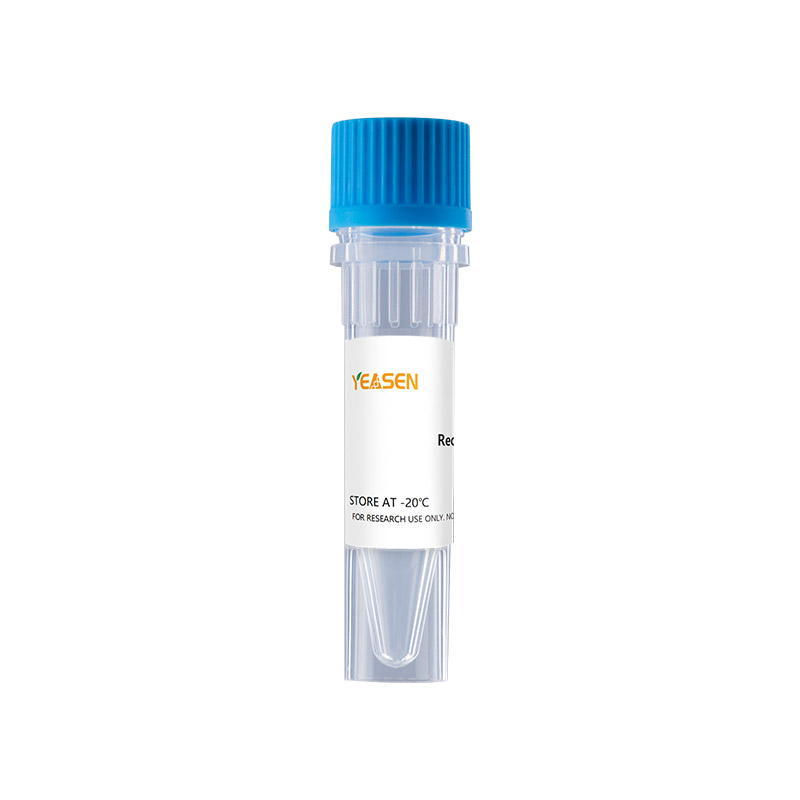產品說明書
FAQ
COA
已發(fā)表文獻
FGF acidic, also known as FGF1, ECGF, and HBGF-1, is a 17 kDa nonglycosylated member of the FGF family of mitogenic peptides. FGF acidic, which is produced by multiple cell types, stimulates the proliferation of all cells of mesodermal origin and many cells of neuroectodermal, ectodermal, and endodermal origin. It plays a number of roles in development, regeneration, and angiogenesis. Human FGF acidic shares 54% amino acid sequence identity with FGF basic and 17%33% with other human FGFs. It shares 92%, 96%, 96%, and 96% aa sequence identity with bovine, mouse, porcine, and rat FGF acidic, respectively, and exhibits considerable species crossreactivity. Alternate splicing generates a truncated isoform of human FGF acidic that consists of the N-terminal 40% of the molecule and functions as a receptor antagonist. During its nonclassical secretion, FGF acidic associates with S100A13, copper ions, and the C2A domain of synaptotagmin 1. It is released extracellularly as a disulfide-linked homodimer and is stored in complex with extracellular heparan sulfate . The ability of heparan sulfate to bind FGF acidic is determined by its pattern of sulfation, and alterations in this pattern during embryogenesis thereby regulate FGF acidic bioactivity . The association of FGF acidic with heparan sulfate is a prerequisite for its subsequent interaction with FGF receptors. Ligation triggers receptor dimerization, transphosphorylation, and internalization of receptor/FGF complexes.
Product Properties
|
Synonyms |
Human aFGF |
|
Accession |
P05230 |
|
GeneID |
2246 |
|
Source |
E.coli-derived Human aFGF protein,Ala2-Asp155. |
|
Molecular Weight |
Approximately 17.3 kDa |
|
AA Sequence |
AEGEITTFTA LTEKFNLPPG NYKKPKLLYC SNGGHFLRIL PDGTVDGTRD RSDQHIQLQL SAESVGEVYI KSTETGQYLA MDTDGLLYGS QTPNEECLFL ERLEENHYNT YISKKHAEKN WFVGLKKNGS CKRGPRTHYG QKAILFLPLP VSSD |
|
Tag |
None |
|
Physical Appearance |
Sterile Filtered White lyophilized (freeze-dried) powder. |
|
Purity |
> 97% by SDS-PAGE and HPLC analyses. |
|
Biological Activity |
Fully biologically active when compared to standard. The ED50 as determined by a cell proliferation assay using murine balb/c 3T3 cells is less than 0.5 ng/mL, corresponding to a specific activity of > 2.0 × 106 IU/mg in the presence of 10 μg/mL of heparin. |
|
Endotoxin |
< 0.1 EU per 1μg of the protein by the LAL method. |
|
Formulation |
Lyophilized from a 0.2 µm filtered concentrated solution in PBS, pH 7.4, with 2 mM EDTA, 0.5 mM DTT, 5 % Trehalose. |
|
Reconstitution |
We recommend that this vial be briefly centrifuged prior to opening to bring the contents to the bottom. Reconstitute in sterile distilled water or aqueous buffer containing 0.1% BSA to a concentration of 0.1-1.0 mg/mL. Stock solutions should be apportioned into working aliquots and stored at ≤ -20 °C. Further dilutions should be made in appropriate buffered solutions. |
Shipping and Storage
The products are shipped with ice pack and can be stored at -20℃ to -80℃ for 1 year.
Recommend to aliquot the protein into smaller quantities when first used and avoid repeated freeze-thaw cycles.
Cautions
1. Avoid repeated freeze-thaw cycles
2. For your safety and health, please wear lab coats and disposable gloves for operation.
3. For research use only.
HB220304



